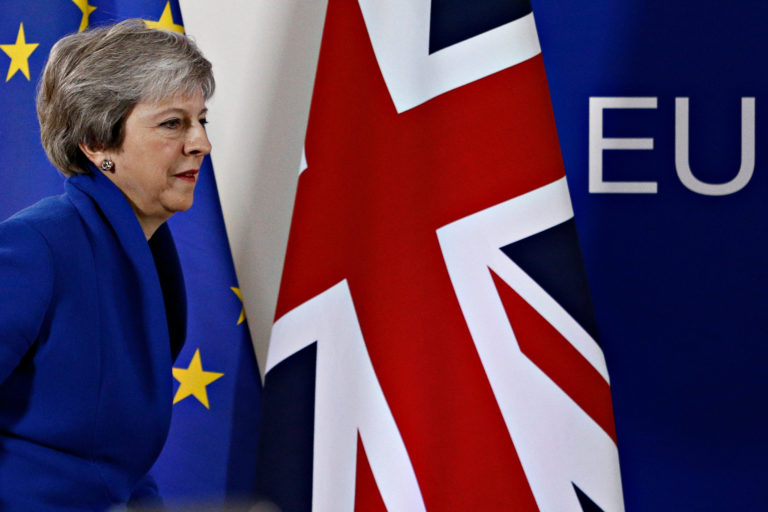Your alphabetic guide to last week’s happenings and what’s to come for Brexit
25 March 2019
Article 50 has now officially been extended, after the Commons went through a series of Motions on the 12/13/14 March respectively, to first reject the PM’s deal (Withdrawal Agreement), then vote to avoid a No Deal scenario, and then instructed the Government to request an extension with the EU to allow the UK to remain, until a way forward has been found. This extension has now been approved by the EU Council at their Summit 21 March. They approved an extension until 12 April.
Brexit is still not settled however, because the 12 April date is only a new deadline for the Commons to agree (find a majority) for a way forward. This is particularly challenging, if there is no majority again for the Prime Minister’s Withdrawal Agreement.
Constitutional Crisis was the watchword of the day after the Commons Speaker John Bercow ruled the Government was unable to bring back the Withdrawal Agreement for a further vote in this session, after it had already been rejected. The danger this posed to the Government’s strategy now seems to have subsided given the circumstances have arguably changed due to the Art50 extension.
DUP [the], who are in a confidence and supply arrangement with the Conservative party have neither shown much confidence, nor supplied much support in recent months, and last week’s announcement that they would not vote for Theresa May’s deal when it was being brought back for a third time, delivered a fresh blow to the PM. This makes the failure of the deal almost certain.
European Elections were the reason the extension was shortened in the end, and the reason for that is simple: All EU citizens (incl Britons whilst still in the EU) have a right to representation. As this is a fundamental right outlined in the Treaties, the short or long extension binary choice is not so much a nuisance but a fundamental legal requirement to ensure the functioning of the EU.
France’s President Emmanuel Macron is said to have pushed for a hardline approach, with a short extension, during meetings with EU leaders. Media briefings in the past week suggested France was increasingly taking an impatient stance, especially compared to Germany’s Chancellor Merkel and Mark Rutte, the Dutch Prime Minister.
Great Britain’s nations have also never seemed more divided. Nicola Sturgeon, the First Minister of Scotland and Leader of the SNP has been positioning her pawns strategically for months – some might argue since IndyRef number 1 was lost the first time around in 2014. According to media, ‘Queen Nic’ could announce a new Independence Referendum for Scotland within days. When prompted last week the First Minister said it was worth waiting “a few more days to see what happened with Theresa May’s deal”.
House of Commons [the] is now gearing up for another “crunch vote” (or seven?) this week…like we haven’t heard that before. But as Parliament gears up for another important week, the mood certainly has been shifting, with many MPs more determined than ever to ensure they will be able to justify their behaviour and voting record in the next fortnight.
Indicative Votes have been on the tip of some backbenchers tongue for several months now, but none of the amendments to the EU Withdrawal Motions put succeeded. Indicative votes is a process spearheaded by Hilary Benn MP, Yvette Cooper MP and Oliver Letwin MP first and foremost of the past month, and envisages Parliament “taking control” of the parliamentary business for one day (normally the prerogative of the Executive branch), to find out which proposals might command a majority. Critic claim this risks the outcome being no proposal at all can command majority support, unless a mechanism could be found to run a series of votes, each time dropping the “least favourable” option and then moving on. We shall see. Media report Number 10 is understood to be considering allowing parliament to vote on seven alternative options.
June 30 – cliff edge for May? One of the interesting political dynamics is a comment made in Theresa May’s statement to Parliament on 20 March: “As Prime Minister, I am not prepared to delay Brexit any further than 30 June.” This has been read as a hint that the PM might resign, should Parliament decide on a scenario requiring a long extension; which is unlikely, but could be as early as this week.
“Kicking the can down the road” any further is in any case no longer an option. The much used metaphor was even picked up by European Commission President Jean Clause Juncker, who when asked if the EU would celebrate the 26th anniversary of the European Economic Area (22 March 2020) Juncker said: “The road the can has in front is a very short one.”
Leo Varadkar, the Taoiseach (Irish prime minister) might caveat Junckers comments following remarks last week that the options agreed at the EU Summit could lead to a delay of nine months, 12 months or longer. He further suggested alternative ways forward for the UK could include staying in a customs union with the EU after Brexit.
May herself has ruled this out, and her principled approach to her unwavering red lines have meant that any “alternative” proposals to her deal, if they secure a majority would need to progress without her. But her own fate, it has been reported, could also be her strongest card, considering so many of the hard Brexiteers want her gone, and the Leadership challenge (narrowly won) from a few months ago prevents a formal coup.
No confidence motion in government [a] has been floated, and even endorsed by some of the hardline Brexiteer group ERG (European research Group), spearheaded by Jacob Rees Mogg MP. If the price to get her to resign would be support for her deal, the likelihood would be favourable for her critics, and lead to a hardline Brexiteer PM to lead the Future relationship negotiations.
Opposition MPs have in the past also often united against the PM, with SNP, Greens, TIGgers and LibDems often issuing joint statements. The Official Opposition position has not always been as clearly understood, and has been somewhat of a balancing act for its MPs. The official Opposition amendment for the Motion today calls for ‘indicative votes’ ensuring Labour’s plan, customs union membership, Common Market 2.0 and another referendum are choices put.
Peter Kyle and Phil Wilson have offered an alternative, which has found broad appeal, including with Labour, but as with the “Malthouse Compromise” (when it was proposed first), there is no knowing if this will work, or be accepted by the EU. The Kyle/Wilson proposal suggests to whip MPs to get May’s deal over the line in Parliament – but only if it is then put to a “confirmation” referendum.
Questions remain however how a Second Referendum might be undertaken, which options should be on the ballot paper and how this could feasibly be done without participating in EU elections. Referenda can be organised in a fast tracked version within weeks (normally 6 months). One to keep an eye on, in particular given Local elections will be held on 2 May 2019.
Revoking Article 50 is also an option that’s suddenly back on the table, after the PM’s statement to parliament (even though she ruled it out after the EU Summit), the EU’s intervention that revoking was an option, and a petition soaring to 3m signatures after multiple crashes of the parliament.uk webpage. This seems very unlikely however.
Statutory instruments procedure is also back en vogue, now that the Exit day will need to be changed in legislation, either to 12 April or 22 May. This would be implemented through a statutory instrument to the EU (Withdrawal) Act 2018. Section 20 (1) of the Act currently defines the “exit date” as 11.00pm (GMT) on 29 March 2019. This would need to be amended before the 29 March.
Transition period [the] is currently envisaged until the end of 2021 as part of the PM’s Withdrawal agreement. However if this is not ratified, this would also not come into force, leaving a “cliff edge” for businesses, unless an alternative was found.
Unlikely allies were found last week also, when the TUC and the CBI jointly issues a statement. TUC General Secretary Frances O’Grady and CBI Director General Carolyn Fairbairn wrote a joint-letter to the Prime Minister ahead of the EU Summit calling on her to urgently change approach on Brexit. They have requested a meeting to talk about businesses and workers, demanding a change in strategy.
Votes vote votes… will dominate another week; some more meaningful than others, but we will remain on the edges of our seats.
Withdrawal Agreement [the] has made a remarkable comeback considering the two heavy defeats it has faced in the Commons already. Reminder, it is currently the only deal with international endorsement and deals exclusively with the condition in which the UK will leave the EU, NOT how it will deal, trade, and collaborate with the EU’s 27 nation bloc in the future.
Xylophone players and other musicians and people in the creative industries will be hit hard by Brexit, MEP Julie Ward has warned in a recent intervention. A host of other industries, including education, care, health, construction, tourism, hospitality and more have also expressed worry due to post Brexit immigration rule changes. While these are more long term issues, stockpiling, and contingency measures are ongoing in preparation for a possible No deal Exit.
“Yellowhammer” is the code name for the UK Treasury for cross-government contingency planning for the possibility of a “no-deal” Brexit. Last week confidential Cabinet Office documents were leaked warning of a “critical three-month phase” after leaving the EU during which the whole planning operation could be overwhelmed. This followed the news that the Ministry of Defence has set up an operations room in a bunker below its Whitehall building to deal with No Deal. Meanwhile media report DEFRA ministers are for the first time being given a daily situation report on potential food and water shortages.
Zombie government, neither fully alive nor properly dead, is what this Government has been called in the past. I have a feeling this week will show what’s what and will chart a way forward for the Brexit process one way or another until 12 April.




